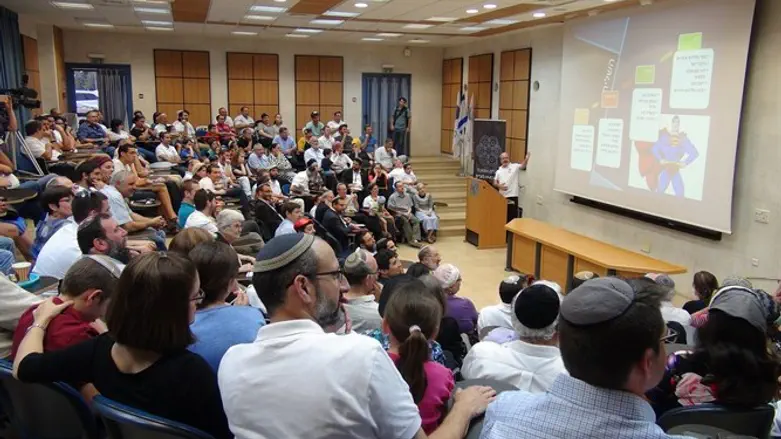
In Fiddler on the Roof, Tevye blesses his daughters by saying, "May you be like Ruth and like Esther." It is true that these are two Jewish heroines. Nevertheless, the traditional blessing, generally given on Friday night, is "May God make you like Sarah, Rebecca, Rachel and Leah." Given that this is the traditional blessing for girls, one might reasonably assume that the traditional blessing for boys would be "May God make you like Abraham, Isaac, and Jacob." However, one would be wrong. The traditional blessing for sons is "May God make you like Ephraim and Menashe." Now, not that I have anything against Ephraim and Menashe – but apart from hearing about their births and their namings, we really have almost no information about them, so what did they do to deserve this eternal honor? I would like to suggest two possible answers.
Rabbi Zvi Elimelech of Dinov (author of Bnei Yissas'char) suggests a very simple yet profound answer. In the course of delivering the blessing to Ephraim and Menashe, Jacob places his right hand, which is understood as the stronger and better arm, on the head of Ephraim the younger son, and his left and weaker hand on the head of Menashe the older. While this disturbs Joseph, we do not find that either of the brothers expresses anger or anguish. The constant fraternal envy that has been haunting the family for generations seems to have finally come to an end. When Jacob sees that these two grandchildren get along, he declares that these two are to be role models for all time.
According to this explanation, the reason Ephraim and Menashe deserve this honor is because they have an admirable and extremely important character trait – brotherly love. Their relationship with each other is outstanding.
According to this explanation, the reason Ephraim and Menashe deserve to be the subject of a blessing is because they have an admirable and extremely important ability – preserving their identity in a hostile culture. Their relationship with the community and the Divine is outstanding.
May we all be blessed, like Ephraim and Menashe, with excellence and success in our relationships in the interpersonal, communal, and Divine realms.
The Torah MiTzion Torani Tzioni Movement sends groups of Israeli post-army yeshiva students to form kollels and affect Jewish identity in Jewish communities all over the world.

